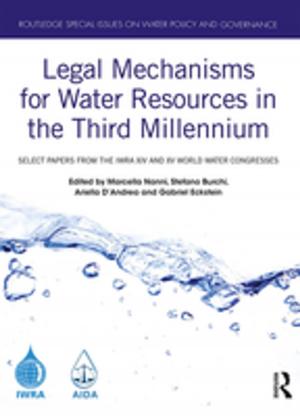Managing Water as an Economic Resource
Nonfiction, Science & Nature, Science, Earth Sciences, Geography, Social & Cultural Studies, Social Science, Human Geography, Biological Sciences, Environmental Science| Author: | James Winpenny | ISBN: | 9781134849765 |
| Publisher: | Taylor and Francis | Publication: | July 22, 2005 |
| Imprint: | Routledge | Language: | English |
| Author: | James Winpenny |
| ISBN: | 9781134849765 |
| Publisher: | Taylor and Francis |
| Publication: | July 22, 2005 |
| Imprint: | Routledge |
| Language: | English |
Water, already a scarce resource, is treated as though it were plentiful and free. The task of supplying enough water of the required quality to growing populations is straining authorities and governments to the limit as the economic and environmental costs of new supply sources escalate and wasteful supply, delivery and consumption systems persist.
Managing Water as an Economic Resource argues that the root of the crisis is the failure of suppliers and consumers to treat water as a scarce commodity with an economic value. James Winpenny evaluates policies for the improved management of existing demand, and draws on case studies from different countries as he discusses how policies could be implemented to treat water as an economic good conferring major economic, financial and environmental benefits.
Water, already a scarce resource, is treated as though it were plentiful and free. The task of supplying enough water of the required quality to growing populations is straining authorities and governments to the limit as the economic and environmental costs of new supply sources escalate and wasteful supply, delivery and consumption systems persist.
Managing Water as an Economic Resource argues that the root of the crisis is the failure of suppliers and consumers to treat water as a scarce commodity with an economic value. James Winpenny evaluates policies for the improved management of existing demand, and draws on case studies from different countries as he discusses how policies could be implemented to treat water as an economic good conferring major economic, financial and environmental benefits.















